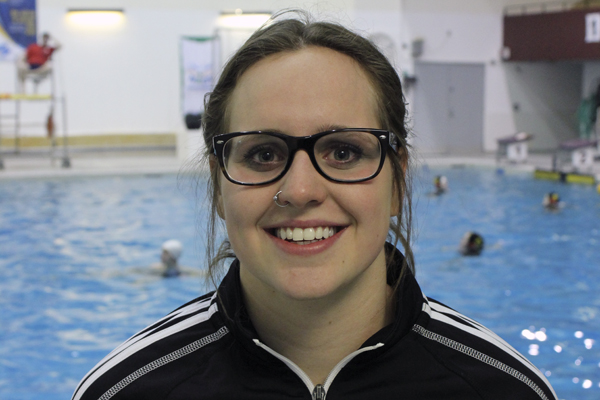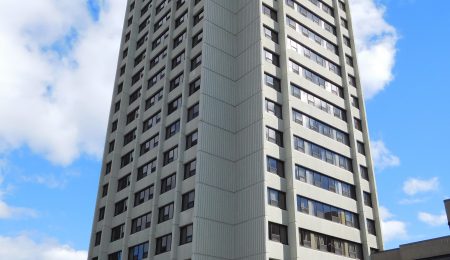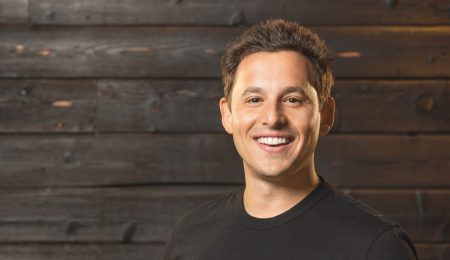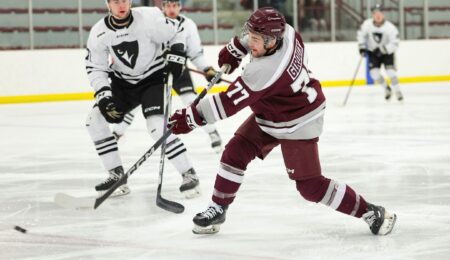Photo by Marc Jan
The typical story of how anyone was introduced to swimming is that their parent stuck them in the sport for precautionary reasons. That’s exactly how third-year ethics and society student Nicole Lachance began her career — but she fell in love with the team-orientated nature of the sport and the competitive racing.
Lachance competes for the University of Ottawa’s varsity swimming team and practises two hours a day and nine times a week. A swimmer’s practice schedule is different than any other athlete’s training. It combines early mornings in the pool, long hours every day, and a variety of fitness training.
“Practices vary from five to seven kilometres and, also vary from more sprint-oriented work to aerobic, longer distance training,” says Lachance. “Personally, my favourite part of the practice is near the end of a set when we need to push ourselves both physically and mentally beyond our limits.”
But training this intensely could not be possible or even bearable without a supportive coach. No athlete wants to endure having to go all year round with his or her main mentor not leading. Dave Heinbuch was named the head coach of the Gee-Gees program following the 2012–13 season. As a 1976 Canadian Olympian, he brings passion, energy, and experience to all the meets, practices, and talks he gives the swimmers.
“Dave is a total badass at swim meets,” says Lachance. “He gives it to us straight, offers feedback, and is positive, passionate, and totally supportive.”
As well, comparable to many athletes, Lachance has an immense support system from home. Having the constant encouragement from the sideline has helped her excel at the varsity level.
“My biggest fan has to be my mom. She has rarely missed one of my races and has an unshakable and deeply biased belief in my swimming,” she says.
The varsity swimming season came to an end over the reading week. The Gee-Gees women’s team placed eighth in the overall team standings with a high score of 172 points, with the men just behind them in 11th place with 103 points. The end of the varsity season only means summer training has begun. These elite athletes jump into an extensive and concentrated training, which Lachance admits includes nine to 10 hours a week with additional cross training.
“When the varsity season ends we actually go right into our summer season,” she says. “We get a month off in August usually, which is where we recharge and regain most of our sanity.”





